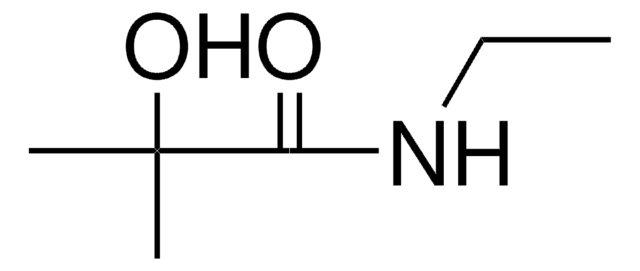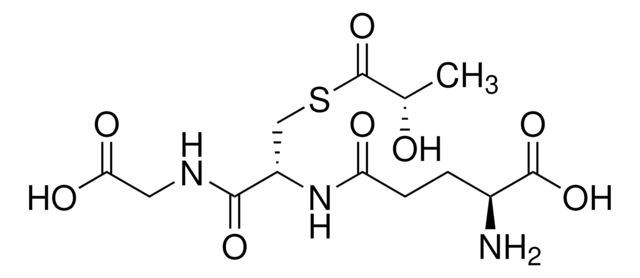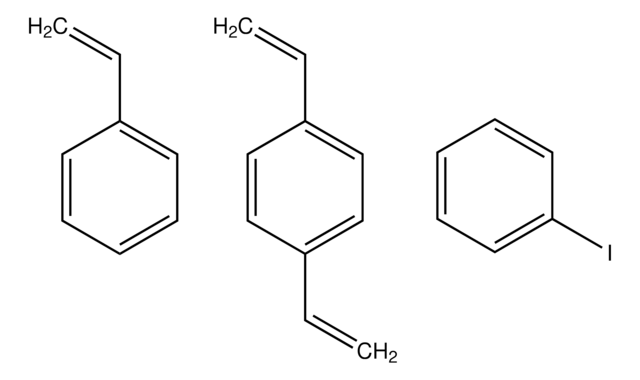20-133-M
PKC Lipid Activator
Synonyme(s) :
PKC activator, Protein kinase C activator
Se connecterpour consulter vos tarifs contractuels et ceux de votre entreprise/organisme
About This Item
Code UNSPSC :
41116012
eCl@ss :
32160405
Nomenclature NACRES :
NA.41
Produits recommandés
Forme
liquid
Niveau de qualité
Fabricant/nom de marque
Upstate®
Technique(s)
activity assay: suitable (kinase)
Numéro d'accès NCBI
Numéro d'accès UniProt
Informations sur le gène
human ... PRKCA(5578)
Description générale
Protein kinase C (PKC) belongs to a family of serine/ threonine kinases. It comprises a regulatory domain at the N-terminus and a catalytic domain at the C-terminus. The regions are divided into conserved regions (C1–C4) and regions that differ between isoforms (V1–V5). PKC has a common pseudosubstrate domain in the regulatory region.
Application
For use in kinase assays.
Research Category
All
All
Actions biochimiques/physiologiques
Protein kinase C (PKC) is activated by diacylglycerol (DAG) and acts as an intracellular receptor of tumor-promoting phorbol esters. It regulates several cell functions and signal transduction pathways through cell migration and polarity, differentiation, proliferation, and cell death. PKC is part of a large group of phospholipid-dependent enzymes, which catalyze the covalent transfer of phosphate from ATP to serine and threonine residues of proteins.
Forme physique
20mM MOPS, pH 7.2, 25mM β-glycerolphosphate, 1mM sodium orthovanadate, 1mM dithiothreitol, 1mM CaCl2.
Stockage et stabilité
1 year at -20°C
Informations légales
UPSTATE is a registered trademark of Merck KGaA, Darmstadt, Germany
Clause de non-responsabilité
Unless otherwise stated in our catalog or other company documentation accompanying the product(s), our products are intended for research use only and are not to be used for any other purpose, which includes but is not limited to, unauthorized commercial uses, in vitro diagnostic uses, ex vivo or in vivo therapeutic uses or any type of consumption or application to humans or animals.
Code de la classe de stockage
12 - Non Combustible Liquids
Classe de danger pour l'eau (WGK)
WGK 2
Point d'éclair (°F)
Not applicable
Point d'éclair (°C)
Not applicable
Certificats d'analyse (COA)
Recherchez un Certificats d'analyse (COA) en saisissant le numéro de lot du produit. Les numéros de lot figurent sur l'étiquette du produit après les mots "Lot" ou "Batch".
Déjà en possession de ce produit ?
Retrouvez la documentation relative aux produits que vous avez récemment achetés dans la Bibliothèque de documents.
D Breitkreutz et al.
Journal of cancer research and clinical oncology, 133(11), 793-808 (2007-07-31)
The protein kinase C (PKC) family represents a large group of phospholipid dependent enzymes catalyzing the covalent transfer of phosphate from ATP to serine and threonine residues of proteins. Phosphorylation of the substrate proteins induces a conformational change resulting in
Notre équipe de scientifiques dispose d'une expérience dans tous les secteurs de la recherche, notamment en sciences de la vie, science des matériaux, synthèse chimique, chromatographie, analyse et dans de nombreux autres domaines..
Contacter notre Service technique







